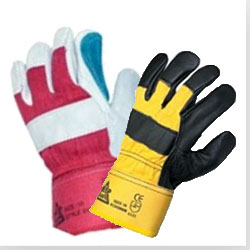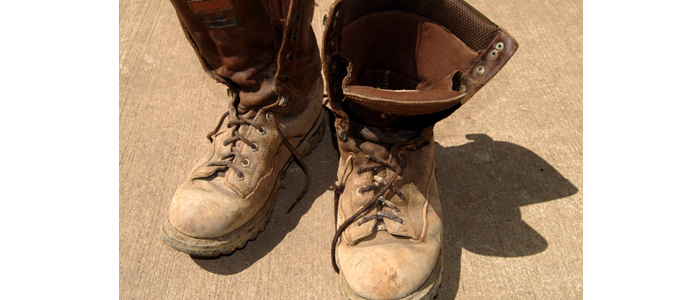Rigger gloves are a type of PPE glove used for a variety of general handling and industrial applications.
Rigger gloves are particularly popular within the construction industry, where manual handling tasks are common and a good level of protection is required, with abrasion, impact, and cutting resistance needed over a long period of time.
One of the main advantages of rigger gloves is their incredible versatility, and this is mainly down to their hardwearing nature. Rigger gloves are often made with leather, along with other materials to help protect every area of the hand. The thick material of the gloves protects wearers’ hands during all kinds of tasks, meaning workers can carry out their job with just one pair of protective gloves, rather than having to carry multiple pairs to be used throughout the day. There are a few different types of rigger gloves, including:
- - Canadian rigger gloves – these typically have a thick leather palm with a fabric back.
- - Insulated rigger gloves – rigger gloves with an insulated lining, ideal for boosting the performance of employees working in cold conditions.
- - Heat resistant rigger gloves – these gloves have a heat resistant lining, meaning they can still offer the wearer protection in conditions with high temperatures. See our heat resistant gloves page to find more heat resistant glove options.
- - High visibility rigger gloves – for workers who need hand protection in dark conditions, these rigger gloves contain hi-vis materials to reflect light and make the wearer visible in the dark.
Where are rigger gloves used?
While the name rigger gloves may suggest that this form of hand protection is solely for the rigging industry, they’re actually commonly used in a broad variety of industries, including:
- Construction
- Warehouse work
- Packing
- Transport
- Building maintenance
- Boating and Fishing
- Gardening
- Mechanics
Rigger gloves are particularly popular within the construction industry, where manual handling tasks are common and high-quality cut resistant gloves are required.
Regulations and Standards for Rigger Gloves
As with all forms of PPE, there are a number of regulations and standards surrounding the production, testing, sale and use of rigger gloves. These include:
- - EN 388 – The European Standard covering gloves which protect against mechanical hazards and risks. Gloves are graded on a scale for resistance to abrasion, blade cuts, tears and punctures.
- - EN 420 – The European Standard defining the general requirements for protective gloves. This looks at areas such as whether they are fit for purpose, safe to use and sized correctly.
- - Personal Protective Equipment Regulations (2002)– These regulations set out the requirements for employers to provide and ensure the use of personal protective equipment at work to protect against health and safety risk. This covers all areas of PPE, including protective gloves.
Browse Protec’s full selection of rigger gloves today to find the right ones for your workplace, or check out our other specialist hand protection, including cut resistant gloves and builders’ grip gloves.





Leave a comment